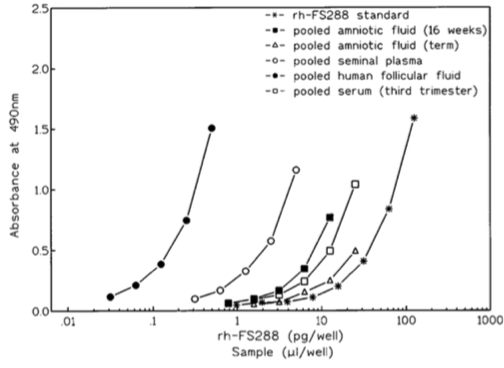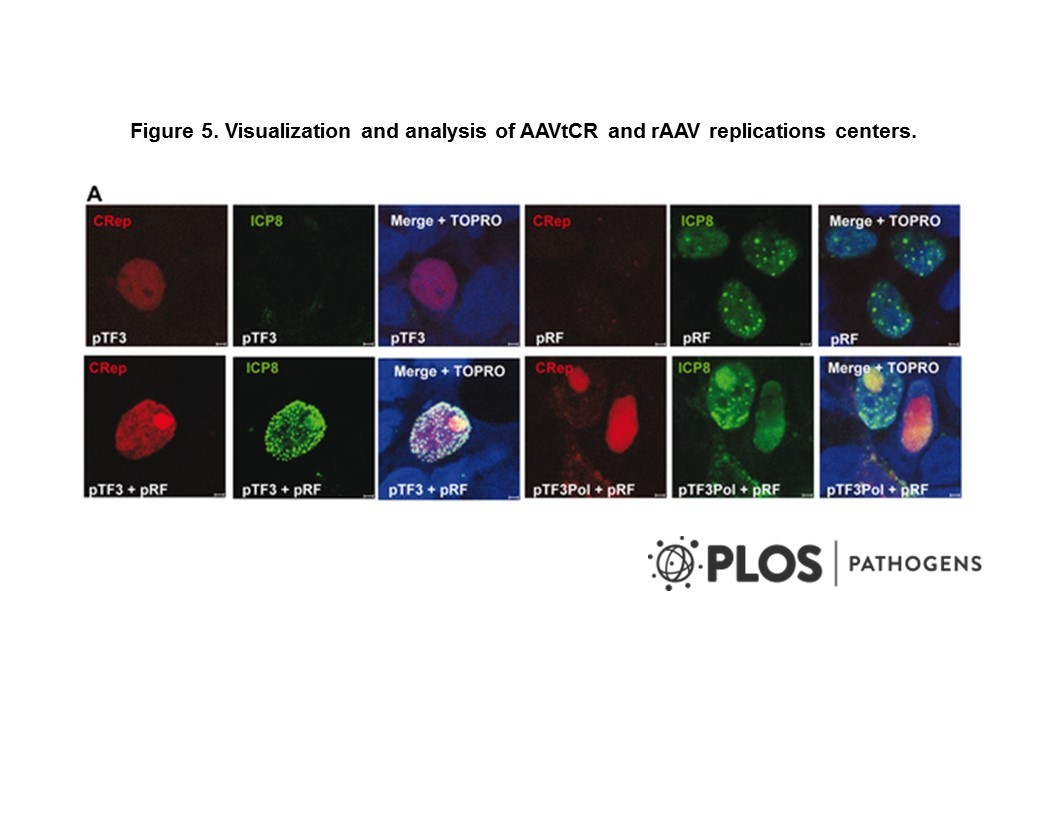Cat. #153634
Anti-Follistatin 288 [17-2]
Cat. #: 153634
Sub-type: Primary antibody
Unit size: 100 ug
Availability: 10-12 weeks
Target: Follistation 288
Class: Monoclonal
Application: ELISA ; IHC ; WB
Reactivity: Human
Host: Mouse
£300.00
This fee is applicable only for non-profit organisations. If you are a for-profit organisation or a researcher working on commercially-sponsored academic research, you will need to contact our licensing team for a commercial use license.
Contributor
Institute: BioServ UK Ltd
Tool Details
*FOR RESEARCH USE ONLY
- Name: Anti-Follistatin 288 [17-2]
- Alternate name: Follistatin, FS, FST, Active-binding protein
- Clone: 15
- Tool sub type: Primary antibody
- Class: Monoclonal
- Conjugation: Unconjugated
- Molecular weight: 37 kDa
- Strain: Balb/c
- Reactivity: Human
- Host: Mouse
- Application: ELISA ; IHC ; WB
- Description: Follistatin is a single-chain glycosylated protein that inhibits follicle stimulating hormone (FSH) release. Alternative splicing of Follistatin mRNA yields two isoforms, FS315 and FS288. FS288 is the main cell-surface form and binds to surface heparin sulphate proteoglycans. Clone 17/2 recognizes recombinant human Follistatin 288, allowing for detection of FSH levels using various analysis methods. This antibody also works in a two site ELISA with Clone 29/9.
- Immunogen: Recognizes human Follistatin isoform FS288, raised against recombinant human FS288
- Isotype: IgG1
- Myeloma used: Sp2/0-Ag14
- Recommended controls: Testis
Target Details
- Target: Follistation 288
- Molecular weight: 37 kDa
- Tissue cell line specificity: Testis
- Target background: Follistatin is a single-chain glycosylated protein that inhibits follicle stimulating hormone (FSH) release. Alternative splicing of Follistatin mRNA yields two isoforms, FS315 and FS288. FS288 is the main cell-surface form and binds to surface heparin sulphate proteoglycans. Clone 17/2 recognizes recombinant human Follistatin 288, allowing for detection of FSH levels using various analysis methods. This antibody also works in a two site ELISA with Clone 29/9.
Applications
- Application: ELISA ; IHC ; WB
Handling
- Format: Liquid
- Unit size: 100 ug
- Shipping conditions: Shipping at 4° C
References
- Hands et al. 2013. Anal Bioanal Chem. 405(23):7347-55. PMID: 23831829.
- Investigating the rapid diagnosis of gliomas from serum samples using infrared spectroscopy and cytokine and angiogenesis factors.
- Fitzgerald et al. 2012. Invest Ophthalmol Vis Sci. 53(11):7358-69. PMID: 23010638.
- The effects of transforming growth factor-?2 on the expression of follistatin and activin A in normal and glaucomatous human trabecular meshwork cells and tissues.
- Mabuchi et al. 2006. Oncol Rep. 15(2):291-6. PMID: 16391844.
- Immunohistochemical localization of inhibin and activin subunits, activin receptors, and Smads in ovarian clear cell adenocarcinoma.
- Pratic
et al. 2004. Chem Phys Lipids. 128(1-2):165-71. PMID: 15037161. - F2-isoprostanes as indices of lipid peroxidation in inflammatory diseases.
- Evans et al. 1998. J Endocrinol. 156(2):275-82. PMID: 9518873.
- Development, validation and application of an ultra-sensitive two-site enzyme immunoassay for human follistatin.
- Majdic et al. 1997. Endocrinology. 138(5):2136-47. PMID: 9112414.
- Testicular expression of inhibin and activin subunits and follistatin in the rat and human fetus and neonate and during postnatal development in the rat.





